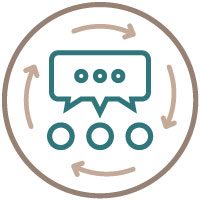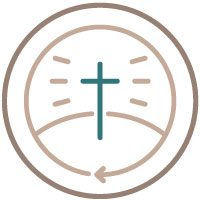May 17, 2025

A video introduction using illustrations, personal stories, metaphors, or active learning examples to begin the discussion.

After the video, prompts are supplied for thinking and sharing with others personal perception and experience. This opening activity prompts participants to think about and relate to the topic, and to share with others.
Who decides where the lines go on a map or globe? And who sets the rules for how far a country’s authority reaches into the ocean or sea?
Review the boundary rules:
Territorial Sea 0-12 nautical miles from shore (full sovereignty)
Contiguous Zone 12-24 nautical miles (some authority but limited)
Exclusive Economic Zone (EEZ) 0-200 nautical miles (for economic authority only—special rights)
High Seas beyond 200 miles (No single country has authority)
Notice: The “high seas” or “international waters” are not lawless—they are governed by international maritime law. The United Nations Convention on the Law of the Sea (UNCLOS), adopted in 1982 and now joined by over 160 countries, sets the rules. Think of it like the traffic laws of the ocean—guiding who can go where, what they can do, and how they must respect others.
How do you see authority working in everyday settings—like a school, an organization, a family, a church, or a sports team?
Where does authority begin, and where does it end?

The Bible discussion begins with a careful reading of the whole passage, either from your own Bibles, or from the provided images below.
Then participants are to ask:
Read Mark 15:1-5.
Jesus Before Pilate
1 Very early in the morning, the chief priests, with the elders, the teachers of the law and the whole Sanhedrin, made their plans. So they bound Jesus, led him away and handed him over to Pilate.
2 “Are you the king of the Jews?” asked Pilate.
“You have said so,” Jesus replied.
3 The chief priests accused him of many things. 4 So again Pilate asked him, “Aren’t you going to answer? See how many things they are accusing you of.”
5 But Jesus still made no reply, and Pilate was amazed.
Pilate had the legal power to release Jesus or sentence Him to death. Yet he’s caught in a web of unseen boundaries—political pressure, fear of public unrest, and his own insecurity. Even though he knows Jesus is innocent (verse 10), he caves to the crowd.
Pilate's hands were on the gavel, but the crowd’s voice ruled his heart. What decisions today do people make because of public opinion—even when they know what’s right?
In John 19:8-11, Pilate becomes afraid when he hears Jesus claimed to be the Son of God. He asks, “Where do you come from?” Jesus doesn’t answer at first, but then calmly reminds Pilate, “You would have no power over me if it were not given to you from above.” Jesus’ silence isn’t weakness—it’s strength. He knows who He is, and who really holds authority.
When you know your identity in God, how does that affect the way you respond to pressure or fear?

A parting video clip with a personal invitation to apply the message to “knowing Christ” and “living in Christ” in the coming week.